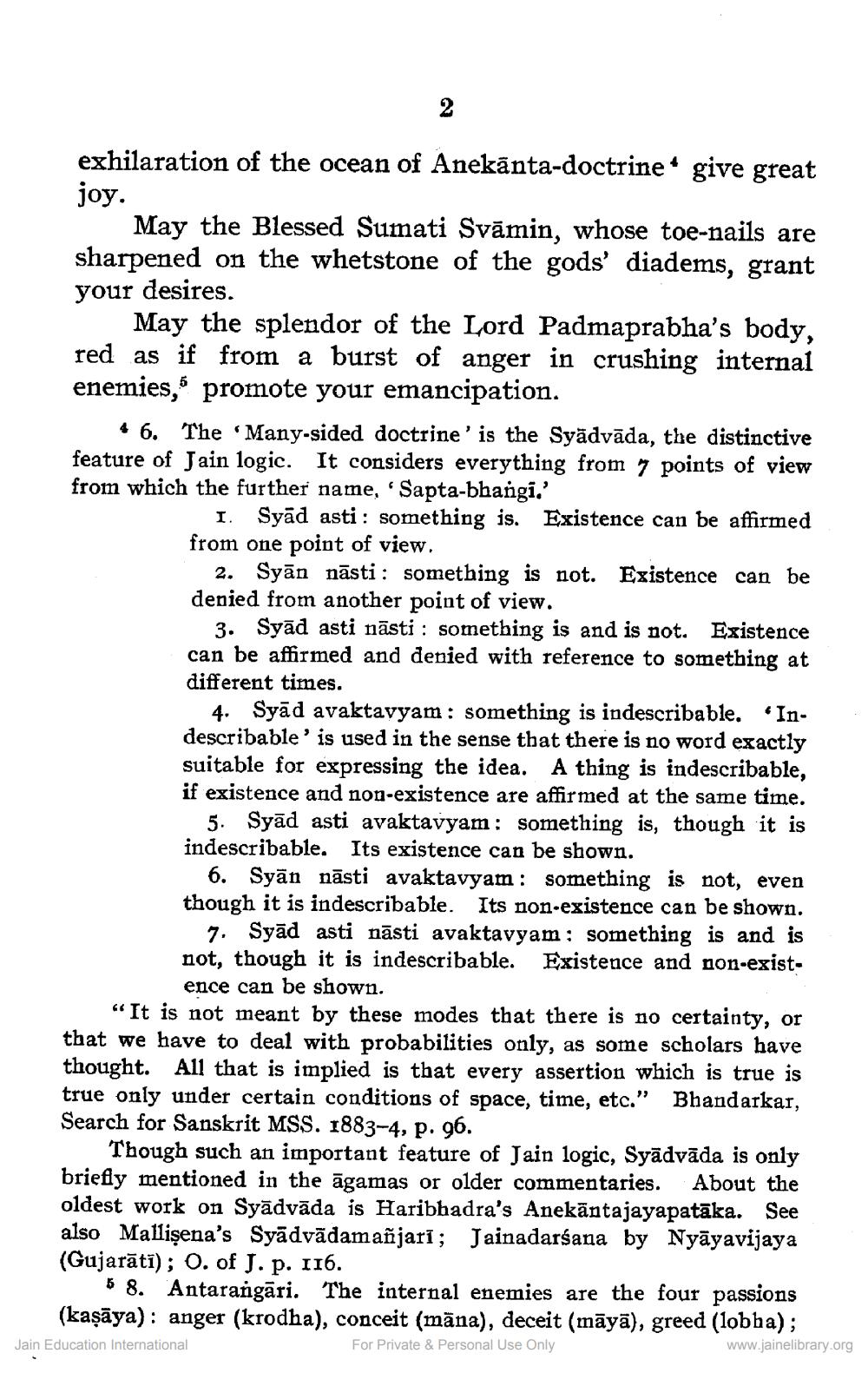________________
2
exhilaration of the ocean of Anekanta-doctrine give great
joy.
4
May the Blessed Sumati Svāmin, whose toe-nails are sharpened on the whetstone of the gods' diadems, grant your desires.
May the splendor of the Lord Padmaprabha's body, red as if from a burst of anger in crushing internal enemies, promote your emancipation.
5
46. The Many-sided doctrine' is the Syadvāda, the distinctive feature of Jain logic. It considers everything from 7 points of view from which the further name, 'Sapta-bhangi.'
I.
Syad asti: something is. Existence can be affirmed from one point of view.
2. Syān nāsti: something is not. Existence can be denied from another point of view.
3. Syad asti nästi: something is and is not. Existence can be affirmed and denied with reference to something at different times.
4. Syad avaktavyam: something is indescribable. 'Indescribable' is used in the sense that there is no word exactly suitable for expressing the idea. A thing is indescribable, if existence and non-existence are affirmed at the same time. 5. Syad asti avaktavyam: something is, though it is indescribable. Its existence can be shown.
6. Syān nāsti avaktavyam: something is not, even though it is indescribable. Its non-existence can be shown.
7. Syad asti nasti avaktavyam: something is and is not, though it is indescribable. Existence and non-existence can be shown.
"It is not meant by these modes that there is no certainty, or that we have to deal with probabilities only, as some scholars have thought. All that is implied is that every assertion which is true is true only under certain conditions of space, time, etc." Bhandarkar, Search for Sanskrit MSS. 1883-4, p. 96.
Jain Education International
Though such an important feature of Jain logic, Syadvāda is only briefly mentioned in the agamas or older commentaries. About the oldest work on Syadvāda is Haribhadra's Anekāntajayapatāka. See also Mallişena's Syādvadamañjarī; Jainadarśana by Nyāyavijaya (Gujarati); O. of J. p. 116.
58. Antarangāri. The internal enemies are the four passions (kaṣāya): anger (krodha), conceit (mana), deceit (māyā), greed (lobha); For Private & Personal Use Only
www.jainelibrary.org




